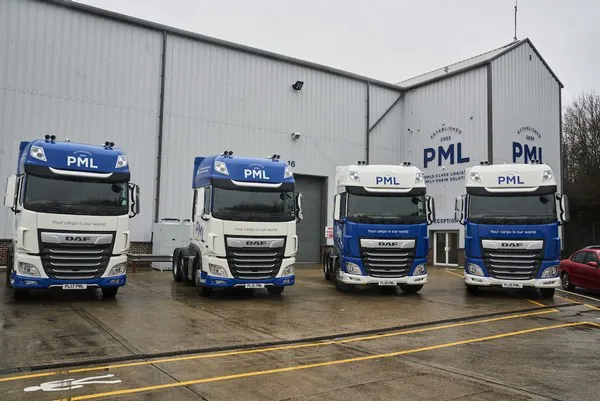Logistics and supply chain solutions for temperature-sensitive goods continue to experience challenging conditions post covid.
 Opinion: Mike Parr, managing director, PML (Perishable Movements Ltd.)
Opinion: Mike Parr, managing director, PML (Perishable Movements Ltd.)
The sector has witnessed escalating prices in air freight which are proving crippling for some businesses. Charges at Heathrow have increased at a rate which is out of kilter with any other UK airport, while the standard of service has declines. For example, it costs £880 to offload a four-tonne pallet from the aircraft onto an ambient lorry which then transports the cargo to an ambient transit shed when precisely the same movement for goods being moved from Stansted to its shed is £37.50! Yet the same movement for exported costs at Heathrow is £55! As a business committed to maintaining the cold chain, PML is concerned that perishable goods can be held in an ambient warehouse for four to six hours after the plane has landed. They are then potentially held a further one to six hours before they are processed and ready for collection in a temperature-controlled (not ambient) vehicle for their onward journey to the retailer.
The excessive handling charges, combined with the lengthy delays, are likely to trigger an enhanced interest in shifting to sea freight, especially as exporters continue to identify new and inventive ways to maintain temperature control while the goods are in transit. At PML, we are experiencing an increase of 10-15% in our sea freight offering compared to the same period last year.
Pricing post covid
It was inevitable that the pandemic would prove disruptive for those responsible for the transfer of perishable goods, both in terms of availability of trade routes and also price increases. Post covid, while we are not seeing such astronomical hikes in pricing, the air freight rates have still not returned to pre-pandemic levels. Sadly, this has meant many companies have been forced out of business as a result of untenable inflated operational and trading costs.

Delays for the foreseeable
News stories detailing the significant delays at UK ports, especially Dover, have become a regular item across various media channels. Brexit and shortage of HGV drivers (many European drivers are now unwilling to drive in the UK due to the ULEZ charges, poor welfare facilities, and anticipated holdups) have played a key part in this issue and unless dramatic changes are forthcoming, it looks likely that these will continue and indeed get worse. In October, the new inspection parameters for imported goods coming into the UK will be activated, and unless the government takes heed of the feedback from logistics firms working within the fresh produce sector, this will take the delays to a whole new level.
For more information:
PML London
Tel.: +44 020 8893 2666
[email protected]
